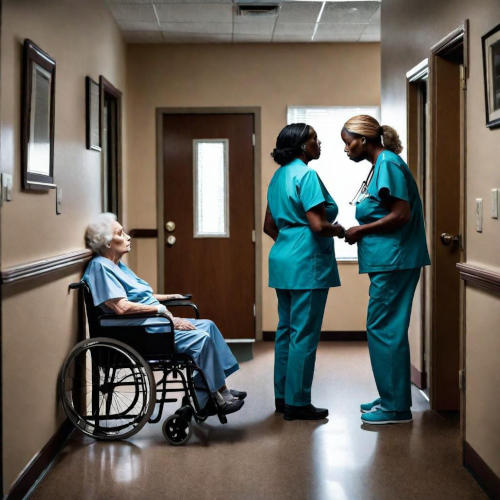
Three Top Tips for Evaluating Senior Living Facilities
When considering senior living facilities for yourself or a loved one, it's essential to approach the decision with careful consideration...
Posted by

Elder abuse refers to the intentional or negligent act by a caregiver or trusted individual that results in harm or risk of harm to an elderly person. This form of mistreatment can take various forms, including physical, emotional, sexual, or financial abuse, as well as neglect or abandonment. Elder abuse is a serious and widespread issue that affects vulnerable older adults, often compromising their physical health, emotional well-being, and overall quality of life. The perpetrators of elder abuse may be family members, caregivers, or individuals in positions of trust, and the abuse can occur in various settings such as nursing homes, assisted living facilities, or within the adult’s own home. Detecting and preventing elder abuse requires awareness, vigilance, and effective intervention strategies to ensure the safety and protection of older adults in our communities.
The signs that a person may be suffering from abuse can include:
Elderly neglect refers to the failure, whether intentional or unintentional, of a caregiver or responsible party to provide necessary care, assistance, or attention to an elderly person’s basic needs. This form of mistreatment can manifest in various ways, including depriving the elderly of food, water, shelter, clothing, medical care, hygiene assistance, or social interaction. Neglect can occur due to caregiver fatigue, lack of resources, or inadequate training, leading to serious consequences for the older adult’s physical health, emotional well-being, and overall quality of life. Elderly residents may not receive the essential care and support they require. Detecting and addressing neglect requires proactive monitoring, clear protocols for caregiver responsibilities, and effective oversight to ensure that older adults receive the dignified and compassionate care they deserve within care facility settings.
Signs that a person may be suffering from neglect could be one or more of the following:
If there is no immediate danger to the resident, then rather than calling emergency services or 911, you should call your local state resource for help. The various agencies that help protect senior adult citizens can vary by state of residency. A sample table of departments has been provided for reference:
)

When considering senior living facilities for yourself or a loved one, it's essential to approach the decision with careful consideration...
Posted by

In the United States, nursing homes operate under three primary systems: For-Profit, Not-For-Profit, and Skilled Facilities. Each system...
Posted by

Touring assisted living facilities is a critical step in choosing the right community for yourself or a loved one. It provides an...
Posted by